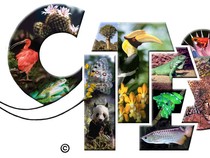Description
CITES (the Convention on International Trade in Endangered Species of Wild Fauna and Flora) aims to ensure that international trade of species of wild animals and plants does not threaten their survival. The text of the Convention was signed in 1973 and it entered in force in 1975.
CITES compliance guidelines (Resolution 14.3) were negotiated since 2001 and adopted in June 2008 in The Hague. The CITES dispute resolution system refers to the Permanent Court of Arbitration (PCA) but this clause has not been used so far.
In terms of enforcing the CITES rules at the national level, there is a strong need for training civil servants in the state parties, in order to facilitate compliance by means of awareness raising and get people interested in complying with this convention. Since enforcement will never be perfect, there is a high need of working in enhancing compliance.
CITES identified the focus on socio-economic aspects and therefore tries to prevent criminal activities and discourage criminals. This is done partly by getting industrial associations more involved or through good public education and well trained civil servants.
One problem related to enforcement deficiencies is the bad quality of national legislation and policy: to change this, there are national legislation projects aiming at improving legislation. They are usually implemented by CITES staff (two lawyers) and sometimes with the support of national authorities and local experts.
One way to ensure compliance with CITES is the classification of parties in different categories on the basis of four criteria (national authorities, prohibition to trade, penalisation of illegal trading, confiscate authority). If none of the four criteria met, a recommendation to suspend trade can be made made.
The CITES compliance system has teeth: it can make recommendations to parties not to trade with other parties. This has been already used in the past in case of non compliance with reporting, significant trade in species, illegal trading (Nigeria) and legislative categories.
CITES also has an enforcement assistance programme, working with enforcement authorities at the national level. The Secretariat also cooperates with an INTERPOL working group (Lyon), by sharing general law techniques with border officials. The Convention has links with chemicals MEAs: joint trainings are provided and there is a green customs initiative.

